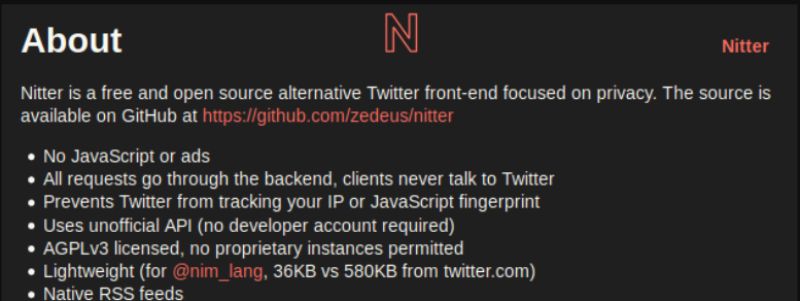Social media’s influence extends beyond traditional networks like Twitter and Facebook. It also plays a significant role in niche areas, including online wagering communities. These communities thrive on interaction and engagement, much like any other online social network. They depend on social media to connect, share experiences, and build a sense of camaraderie among users.
Moreover, the recent developments around Twitter’s policies, content moderation struggles, and threats to privacy rights have raised serious concerns for many users. As Twitter continues to centralize control and makes questionable calls regarding transparency, free speech limits, and data collection, the clamor for ethical alternatives keeps growing.

It became apparent that an in-depth look at the ecosystem of social platforms prioritizing user rights without compromising connectivity was needed. We set out to shine a light on networks attempting to facilitate expression and association without accruing disproportionate corporate power or exploiting personal data. Below, we dive deep into the spectrum of ethical and user-empowering social networks beyond Twitter seeking an alternate vision for social media’s future.
Why Are Users Leaving Twitter for Other Platforms?
People are leaving Twitter for other social networks because they worry about how safe their personal information is on Twitter. Recently, there have been a lot of cases where Twitter did not handle user data well. For example, they used phone numbers and emails given for security reasons to target ads, and there were times when hackers got access to user data. Twitter even had to pay a big fine of $150 million for not keeping user promises about privacy.
Because of these issues, more and more users want to be on social networks where their privacy is taken seriously. They are choosing networks like Mastodon, Diaspora, and Nitter because these places give users more control over their data and are more open about how they use it. Unlike Twitter, these networks don’t use personal information for things the user hasn’t agreed to. Users are moving to these new platforms because they want to feel safe and know that their personal data is not being misused.
Overview of Twitter Alternatives
Let’s start by briefly introducing some of the major alternative social platforms available today:
- Mastodon is a decentralized, open-source microblogging network. Its federated architecture allows independently operated servers to interact with a common protocol. This means no single entity controls the network. Mastodon emphasizes freedom of expression within an inclusive community framework.
- Diaspora consists of interconnected social pods run by different groups and individuals. Like Mastodon, it’s decentralized but focused on providing a Facebook-like sharing experience for friends and communities. User privacy is a key priority.
- Friendica functions as a fusion of Facebook, Twitter, and email. Its features facilitate both public and private communication between both individuals and groups. The platform values privacy while encouraging polite discourse.
- GNU Social is a continuation of the privacy-centric StatusNet project under free software ideals. Its goal is to offer ethical public and private communication aligned with user rights. It interoperates within the fediverse.
- Minds offer encrypted communication in an open-source environment. It aims to provide fair monetization to users through its token rewards program. Features like boosted content and groups foster community engagement.
- Gab was founded to provide a platform for free speech and individual liberty interests ignored by mainstream sites. It carries minimal moderation but emphasizes respectful dialogue between diverse viewpoints.
- WT Social stands against toxic online culture by enabling civil discourse and information quality. As a nonprofit, it pledges to never collect/sell user data while giving control over feeds. It’s supported by donations and memberships.
The Nitter Advantage – Our Favorite Twitter Alternative
Saving our favourite for last, we believe Nitter provides the ideal blend of privacy protection, customization, performance, and ethical commitment outside Twitter.

What is Nitter?
Nitter is an open-source alternative Twitter front-end developed by creator Zedeus. First launched in 2019, it has quickly grown into a privacy community favourite for accessing Twitter minus the tracking.
Nitter operates by routing all requests through its backend instead of connecting users directly to Twitter’s servers. This allows it to shield user IP addresses and other identifying data from being logged by Twitter.
Why We Like Nitter
Nitter offers a streamlined experience that loads far faster than Twitter itself while letting users customize its interface. And unlike Twitter, it comes with no ads or bloatware to hamper performance.
Specific advantages that make Nitter our favourite include:
Privacy Protection
- Accesses Twitter without exposing IP or identifiers
- Backend routing cuts off Twitter’s tracking ability
- Aligns with ethics of user privacy rights
Customization & Performance
- Streamlined interface loads faster than Twitter
- Allows UI customization through themes
- Ad-free experience improves performance
Transparency & Expandability
- Open source code enables transparency
- Contributors expand features aligned with privacy
- Roadmap includes additions like account integration
Convenience
- Adds functionality like RSS, embeds, archiving
- Expands Twitter access minus the tracking
- Hits the sweet spot between utility and user rights
For an ethical Twitter experience that doesn’t undermine personal agency, Nitter is an excellent choice. Its existing features and future roadmap make it our favourite front-end alternative.
Key Attribute Comparison of Twitter Alternatives
| Platform | Key Features | Privacy/Data Control |
|---|---|---|
| Mastodon | – Decentralized servers – Diverse communities – Open source | – Strong default privacy – User data ownership – Prevents unilateral policy changes |
| Diaspora | – Encrypted messaging – Granular audience control | – No unencrypted admin access – Extensive account control tools |
| Friendica | – Integrates multiple platforms – Group messaging | – Separate contact storage – Strict limited admin access |
| GNU Social | – Public and private options – Fediverse integration | – Avoids collecting private user info |
| Minds | – Tokens for monetization – Encrypted messaging | – Minimal necessary data access – Ledger provides transparency |
| Gab | – Near-absolute free speech | – Minimal governance model |
| Tumblr | – Multi-media content creation – Custom themes | – |
| WT Social | – High information quality – Civil discourse tools | – Non-profit pledge to not sell data |
| Nitter | – Themes – RSS feeds – Embeds | – No direct Twitter access – Cuts off user tracking |

